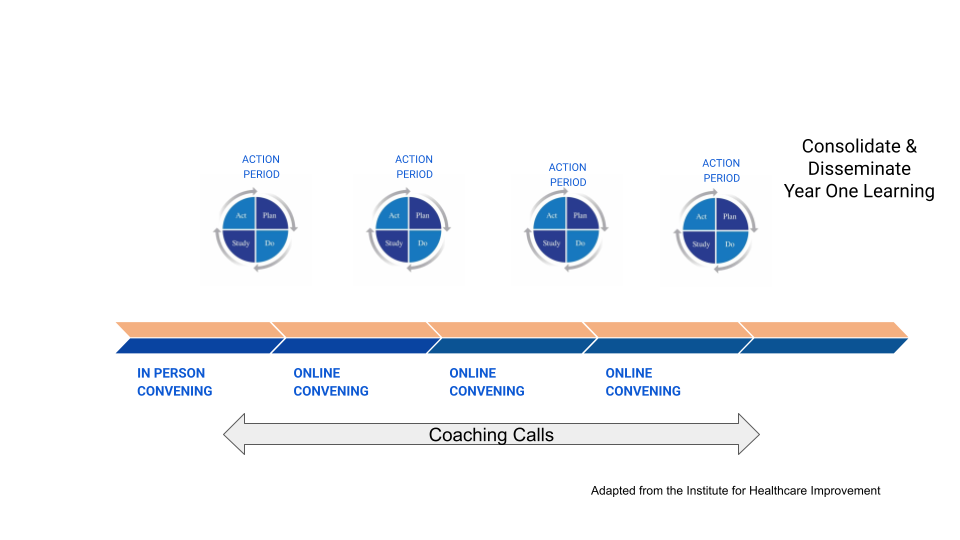Breakthrough Collaborative
The Model
The Breakthrough Collaborative Model (created by the Institute of Healthcare Improvement [IHI)], brings together teams from different organizations, including districts, schools, and universities, to address common problems such as chronic absenteeism, student mental health, and low graduation rates, among others. Working together, teams in a Breakthrough Collaborative use common tools and a structured learning process to share ideas, test new approaches, and measure progress toward achieving their shared aims. The collaborative learning process, which lasts approximately one year and includes regular and expert coaching, involves several phases including:
- Learning – Participants learn about the challenge, identify best practices, and set goals for improvement.
- Testing – Teams test new ideas and interventions to see what works, for whom, and under what conditions.
- Spreading – Successful ideas and interventions are documented and spread across the participating organizations and beyond.
- Sustaining – Teams work to sustain improvements over time by monitoring progress and making ongoing adjustments.
By partnering together to identify and implement best practices, districts, schools, universities, and other youth-serving institutions can improve the learning opportunities and outcomes of every child.
Breakthrough Collaborative Model

How Can NCSUP Help
NCSUP provides professional development, technical assistance, and tools to help partnerships committed to the use of improvement science to develop leaders, address local problems of practice, and promote educational opportunities and outcomes for all students.
